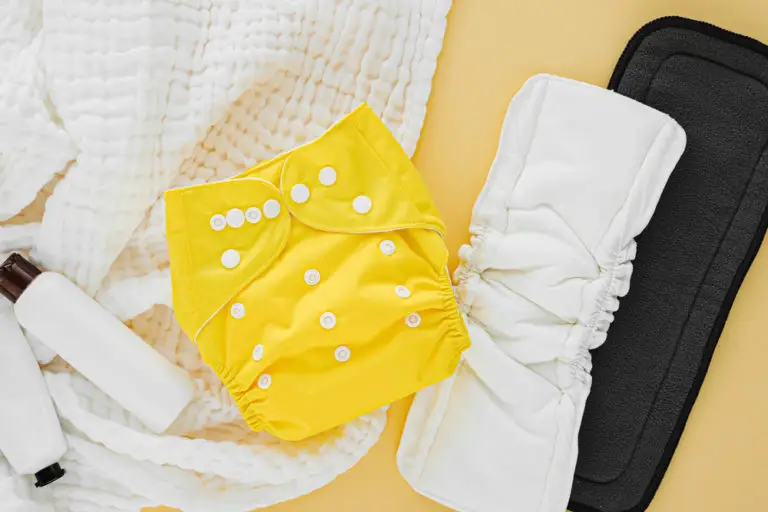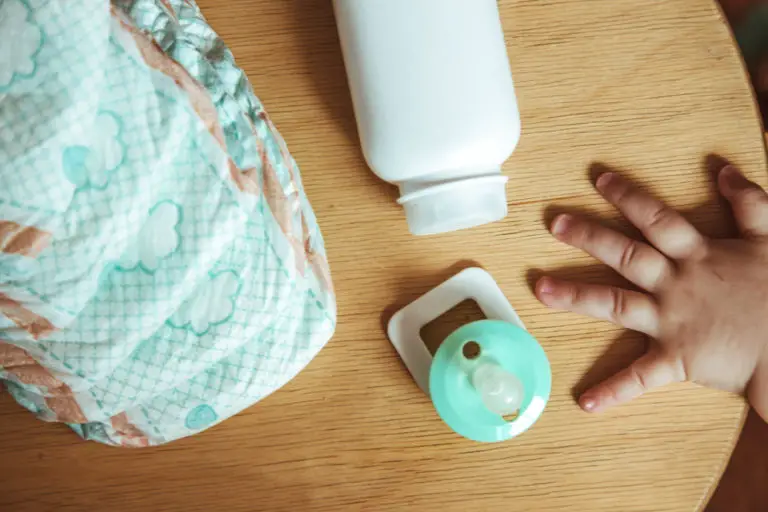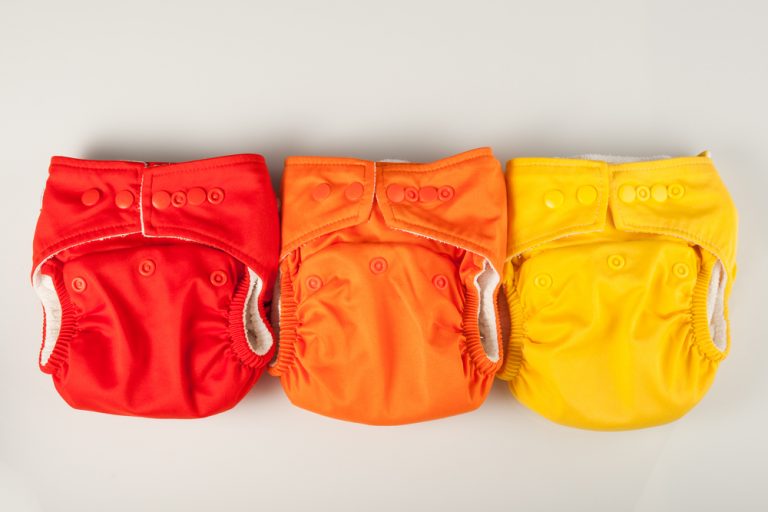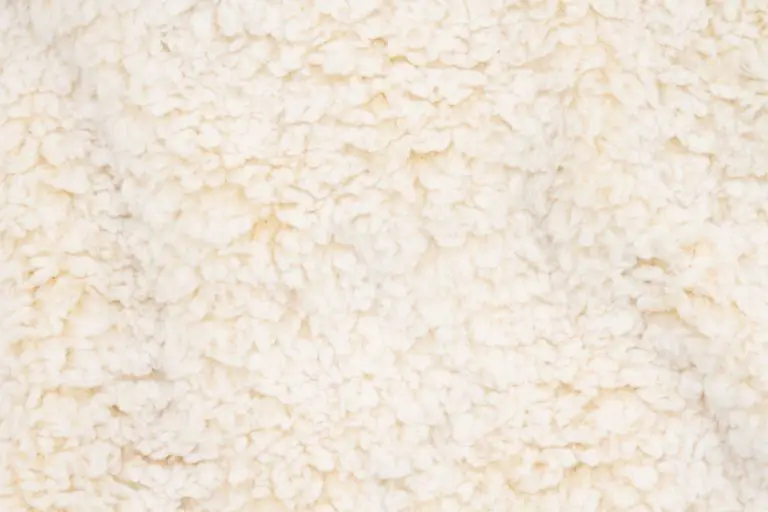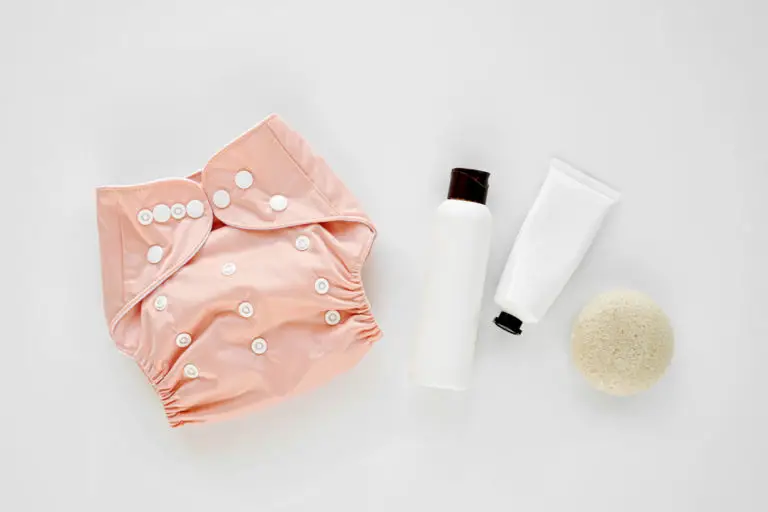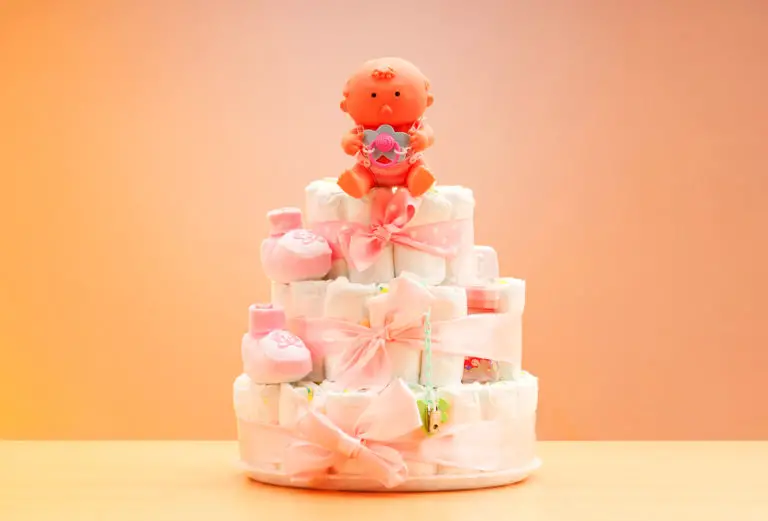12 Tips to Avoid Baby Peeing Through Diaper at Night (2025)
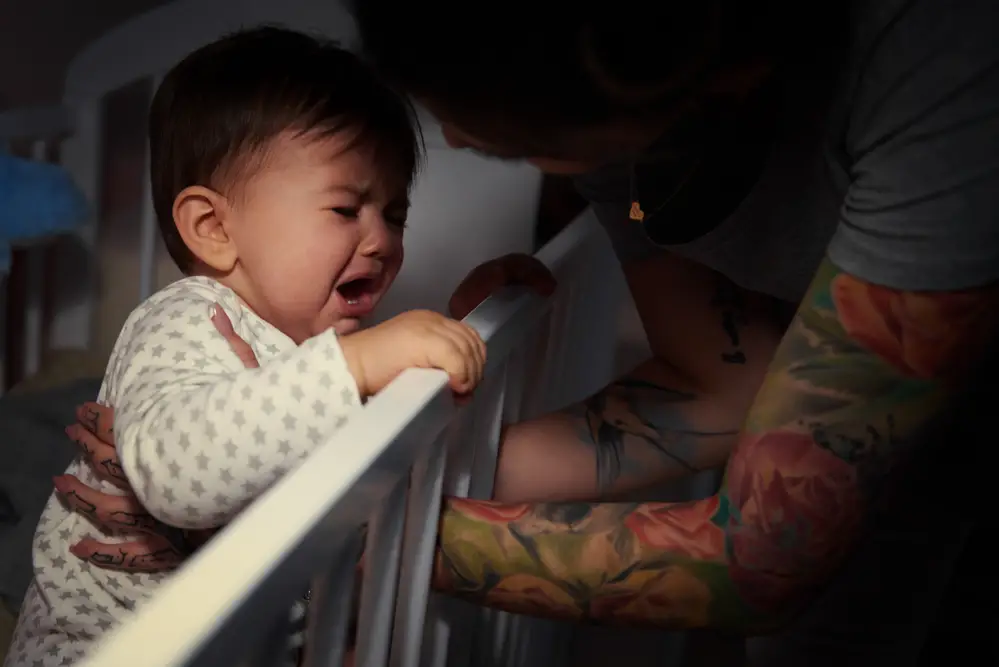
To stop your baby peeing through diaper at night, you need to use diapers with good absorbency and ensure they fit correctly. When your baby sleeps for long periods, they need high absorbency. The fit must be secure to prevent the diaper from moving and stop compression leaks.
1. Use Overnight Diapers
If you have diapers leaking overnight, there are a few things you can do. One of them is to use overnight diapers for toddlers. To avoid diaper leaks at night, use a diaper with extra absorbency and good moisture wicking. Overnight diapers have an absorbent core that locks in moisture for longer.
Choose a diaper that is made from ultra-absorbent materials such as bamboo and cotton. They should also have a liner that draws moisture away from your baby’s skin and channels it into the core.
You can avoid diaper leaks overnight with a diaper that has strong elastics and leg cuffs that prevent leaks. Nighttime diapers should be flexible and move with your baby. This will prevent gaps and leaks. Choose a diaper with a blowout guard to avoid an overflowing diaper.
2. Change Diaper Just Before Bedtime
If your baby has a leaking diaper and you want to stop changing diapers at night, try changing the diaper just before bed. Most diapers offer good absorbency, and if you put a new diaper on at bedtime, then your baby will be able to sleep longer without the diaper leaking.
Have a set bedtime and bathtime routine, so your baby gets used to it. Put a new diaper on after bathtime and then head straight to bed.
That way, your baby will start their sleep with a fully absorbent diaper that will take a while to become full. You can also change their diaper before your bedtime, which will help you get a few extra hours of sleep.
3. Test Different Diaper Brands
Some diaper brands work better than others, so try a few different brands to find the best fit. For example, if your baby is a heavy wetter and keeps peeing through diaper after diaper, try a diaper with high absorbency. Materials like bamboo and cotton work well. You could even try a cloth diaper.
If your baby keeps peeing through side of diaper, then try a diaper with a different fit. Sometimes a different style will stop pee leaking out of diaper. Some brands have diapers for blowouts that work well for newborns. Diaper brands have adjustable leg cuffs, different fits, cores, and gussets so that you can find the best one for your baby.
Some diaper brands have a wetness indicator. This will indicate a soaked diaper, and you can change it before it leaks.
4. Go Up on the Diaper Size
If your baby keeps peeing through diaper after diaper then the diaper might be too small. If you find the diaper not holding pee adequately then your baby should go up a diaper size. Look at the front of diaper view. If the diaper is riding low then it will leak. A bigger size will sit just under the belly button and prevent leaks.
If your baby pees through diaper gaps then a bigger size will stop this. The tabs will close snugly and contain any mess. Going up a diaper size will also give your baby more flexibility and the diaper won’t pull or gape.
This will stop any compression leaks. The leg cuffs should be snug but not leave marks and you should be able to put two fingers inside the diaper waistband.
5. Add Extra Protection
If you are using cloth diapers and your baby is peeing through diaper inners then add extra absorbency. Booster pads are made from absorbent material like bamboo, cotton, or microfiber terry. These add extra layers of absorbency, particularly for babies peeing through diaper at night.
If you use a pocket diaper then adding an extra liner can help to wick away moisture quickly before it can leak. You can also add inserts or prefolds to the pocket for added protection. Snap-in boosters allow you to customize your absorbency to suit your baby’s wet zone.
You can fold it to create layers of absorbency that will prevent a soggy diaper. Don’t overstuff your pocket diapers or add too many extra layers as ths can cause the diaper to gape and it will leak.
You can also add liners to disposable diapers.
6. Change More During the Nighttime
If your baby pees through diaper at night then try changing their diaper more often. If your baby has a soaking wet diaper it will not be able to absorb any more liquid. If you change it before it gets full, then you can prevent leaks.
Put a new diaper on your baby just before bed and then change it a few hours later before you go to bed. If your baby is still waking up for a feed then change their diaper again at the early morning feed. By putting a new diaper on your baby through the night, you can prevent the diaper leaking at night.
You don’t need to wake your baby up to change them. Instead, choose a diaper with soft opening front tabs that are quiet.
7. Try Cloth Diapers
Cloth diapers are more absorbent than disposable diapers, and they allow you to customize the absorbency. There are different styles but if your baby is peeing out of diaper at night, then try fitted overnight cloth diapers. The whole diaper is absorbent, and you can add absorbency.
Cloth diapers allow you to add absorbency to suit your baby’s wet zone, which stops leaks. You can also adjust the size using the rise and waist snaps. Some cloth diapers even have adjustable leg cuffs. You can create the right fit for your baby, which prevents leaks and blowouts.
Cloth diapers are made from absorbent materials like bamboo, cotton, microfiber, and terry. These absorb large amounts of liquid. The waterproof covers stop any leaks.
8. Get a Proper Diaper Fit
The fit of the diaper will make a big difference in preventing leaks. A diaper should fit snugly and securely but not be too tight.
Check the waist of the diaper. It should sit just below your baby’s belly button. The side tabs should close securely without gaping. You should not have to stretch them to close.
The back of the diaper should sit flush with your baby’s skin and not gape. You should be able to put two fingers under the waistband of the diaper. The diaper is too tight if your baby has a muffin top.
The leg elastics should be secure but gentle. If there are red marks or indentations on your baby’s skin then the diaper is too tight. If there are gaps at the leg cuffs then the diaper is too big.
9. Limit Liquids if Possible
If you have an overnight diaper leak, it might be that your baby went to bed with a full bladder. Try and limit the amount of liquid they have an hour before bedtime. If your baby is still having a bottle at night then try and feed them earlier so that they have time to pee before you change their diaper and put them to sleep.
Avoid sugary drinks as these can stimulate the bladder. Stick to plain water as this will quench your child’s thirst and they will only drink as much as they need. Try and encourage them to drink water throughout the day so that they are not thirsty at night.
10. Add Extra Mattress Cover
A mattress cover can make a big difference overnight. They are made from water-resistant material and go over the mattress like a fitted sheet. If your baby keeps peeing through their diaper then an extra mattress cover will save you laundry time.
Nothing is more irritating than changing linen at night. If you have two mattress covers then you can simply take the wet one-off and change your baby’s diaper. This will keep your baby dry and protect the mattress.
11. Choose an Easily Washable Mattress
If your baby keeps peeing through their nappy and wetting the bed then make sure you have a machine-washable mattress.
These are made from layers of foam that can easily go into a washer and dryer. This makes your job easier as you can quickly wash and dry the mattress. Keeping your baby’s mattress clean is important.
Having a mattress you can wash will also prevent stains and odors. Choose a mattress that is easily washable, hypoallergenic, and breathable.
12. Always Point Boy Parts Down
Boys have a different wet zone than girls and often leak out of their diapers. It is always a good idea to point their boy parts down when putting on their nappy.
That way, they will be peeing over the absorbent material instead of out the front of the diaper. This is especially important if your baby boy sleeps on his tummy.
Make sure the diaper is snug and secure. If it is loose, it can move around, and your baby boy can be out of the diaper more easily. Diapers for boys have strong tabs and flexible sides that stop your baby boy peeing out front of diaper at night.

Caitlin van Wyk
Caitlin van Wyk is a Parenting Writer and mother of two. With a background in psychology and teaching, she is passionate about offering support and educational content for parents as they navigate the highs and lows of raising kids. She has a Bachelor of Arts degree in English and Psychology from the University of South Africa. Caitlin also has a Level 5 TEFL Certificate and enjoys helping people get better at English. This experience lets her connect with people from different cultures, which adds depth to her writing. She managed Glengarry Holiday Farm for 10 years, emphasizing the importance of good communication and strong relationships in business and content creation.

